
The heat is on for building 3D artificial organ tissues
Bioengineers at Rice and the University of Washington are devising a hot new technology to remotely control the positioning and timing of cell functions to build 3D artificial, living tissues.

The heat is on for building 3D artificial organ tissues
Bioengineers at Rice and the University of Washington are devising a hot new technology to remotely control the positioning and timing of cell functions to build 3D artificial, living tissues.

Ocean water could melt precarious Antarctic glacier
Rice University researchers, alumni and staff are part of an international effort that has discovered a pathway for warm ocean water to melt the underside of Thwaites Glacier, a precarious body of west Antarctic ice that could add as much as 25 inches to global sea level if it were to suffer a runaway collapse.
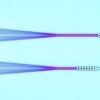
Gentle probes could enable massive brain data collection
The National Institutes of Health is backing a Rice project to continue the development of flexible nanoelectronic thread to gather information from neurons. The implants could help find therapies for neurological disorders.

National parks preserve more than species
National parks are safe havens for endangered and threatened species, but an analysis by Rice University data scientists finds parks and protected areas can preserve more than species.

Boundaries no barrier for thermoelectricity
Rice researchers show how thermoelectricity hurdles some defects, but not others, in gold nanowires. The discovery has implications for making better thin-film electronic devices.
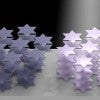
Ambient light alters refraction in 2D material
Microscopic crystals in tantalum disulfide have a starring role in what could become a hit for 3D displays, virtual reality and even self-driving vehicles.

Researchers set sights on theory of deep learning
Rice's Richard Baraniuk and Moshe Vardi are part of a multiuniversity team of engineers, computer scientists, mathematicians and statisticians tapped by the Office of Naval Research to develop a principled theory of deep learning.
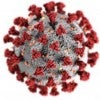
Rice computer science lab collaborates on design of novel SARS-CoV-2 test
Rice computer scientists are collaborating with molecular diagnostics company Great Basin Scientific to streamline the development of COVID-19 testing.
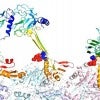
Protein ‘chameleon’ colors long-term memory
Researchers model the binding structures of actin and associated proteins they believe are responsible for the formation of longterm memory.
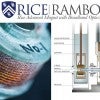
Rice’s RAMBO-II: A sequel better than the original
First-of-its-kind spectrometer is getting stronger magnets, wider range of lasers.

Where lions operate, grazers congregate … provided food is great
Meals are typically family affairs for zebras, gazelles, cape buffalo and other grazing species in the African Serengeti, but in one of the first studies of its kind, ecologists have found grazing species can be more willing to share meals in areas frequented by lions.
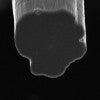
No limit yet for carbon nanotube fibers
Rice University researchers report advances in their quest to make the best carbon nanotube fibers for industry.
Rice researchers use InSight for deep Mars measurements
Ghasempour receives 2020 Marconi Society Young Scholar Award

Rice researchers helping to ready vote-by-mail system for November
Rice University researchers have won a federal grant to validate and improve VotingWorks' open-source vote-by-mail technology in time for November's election.